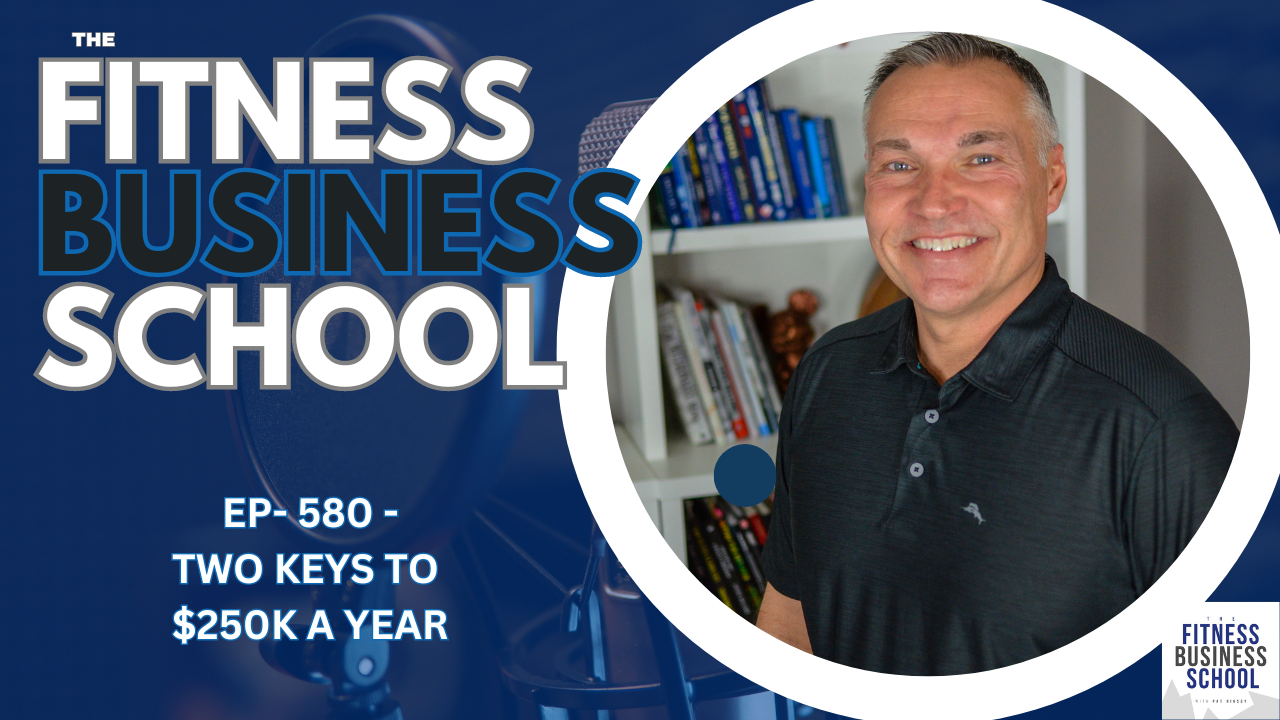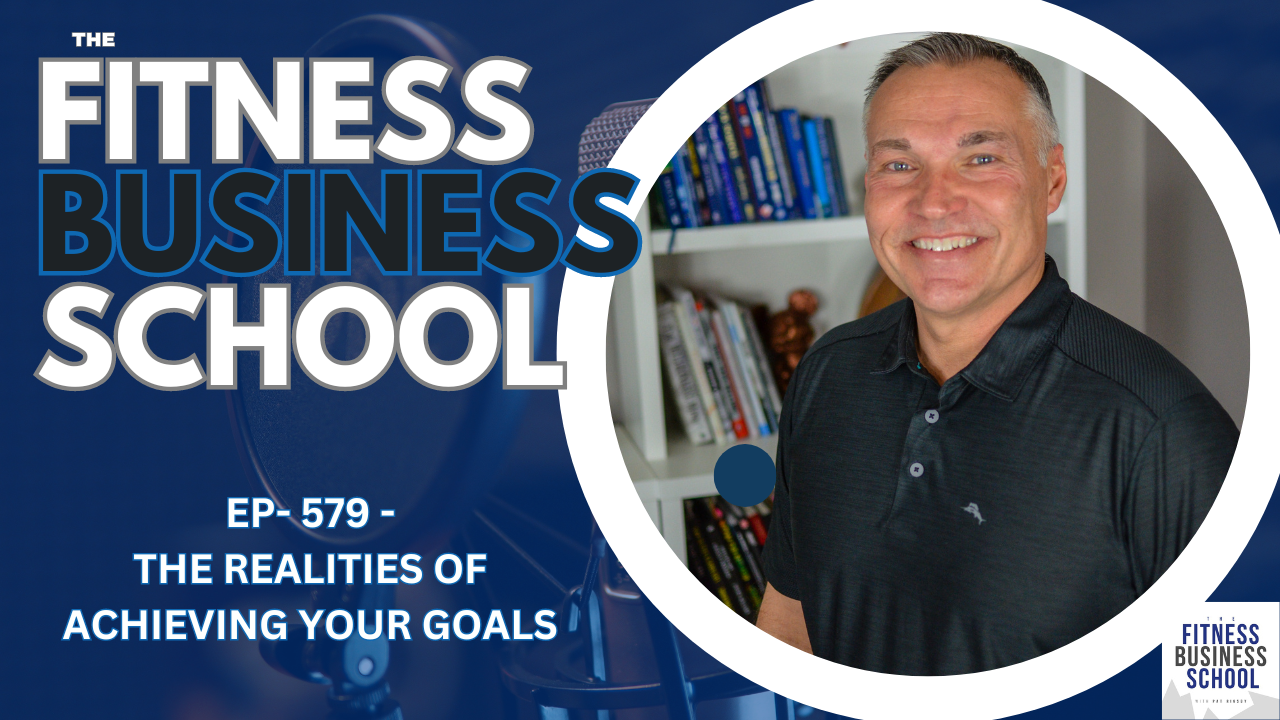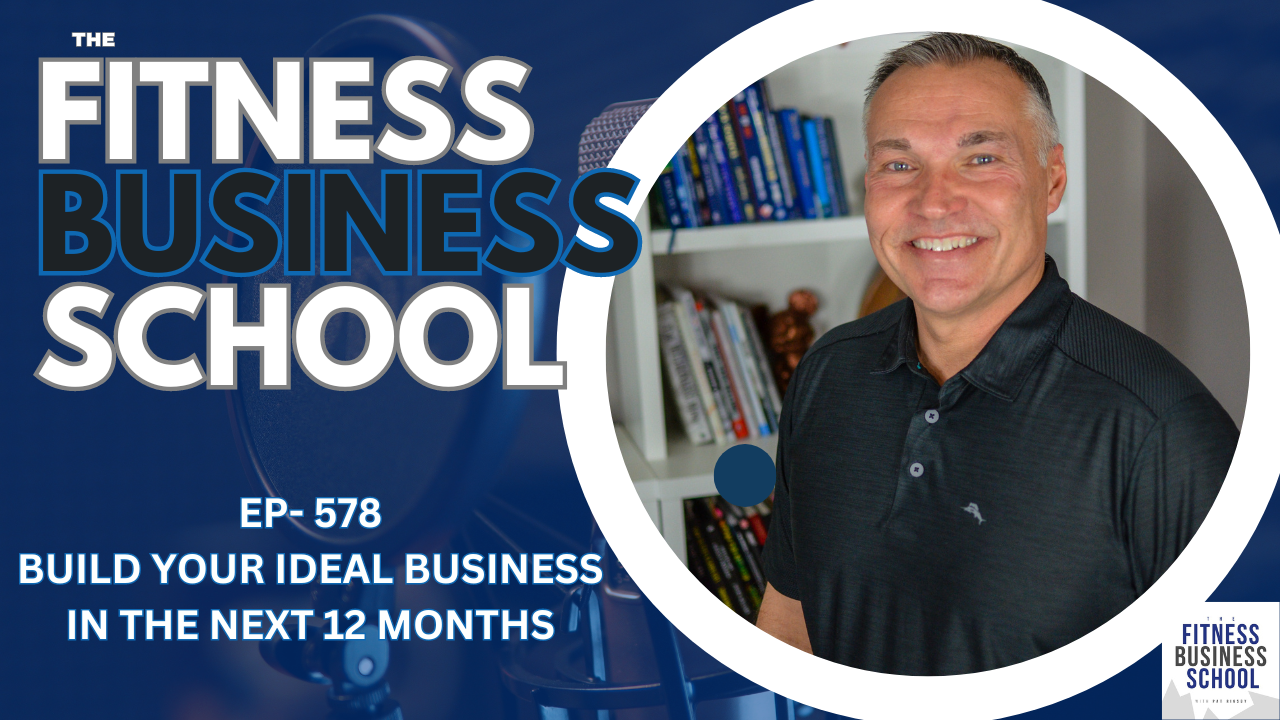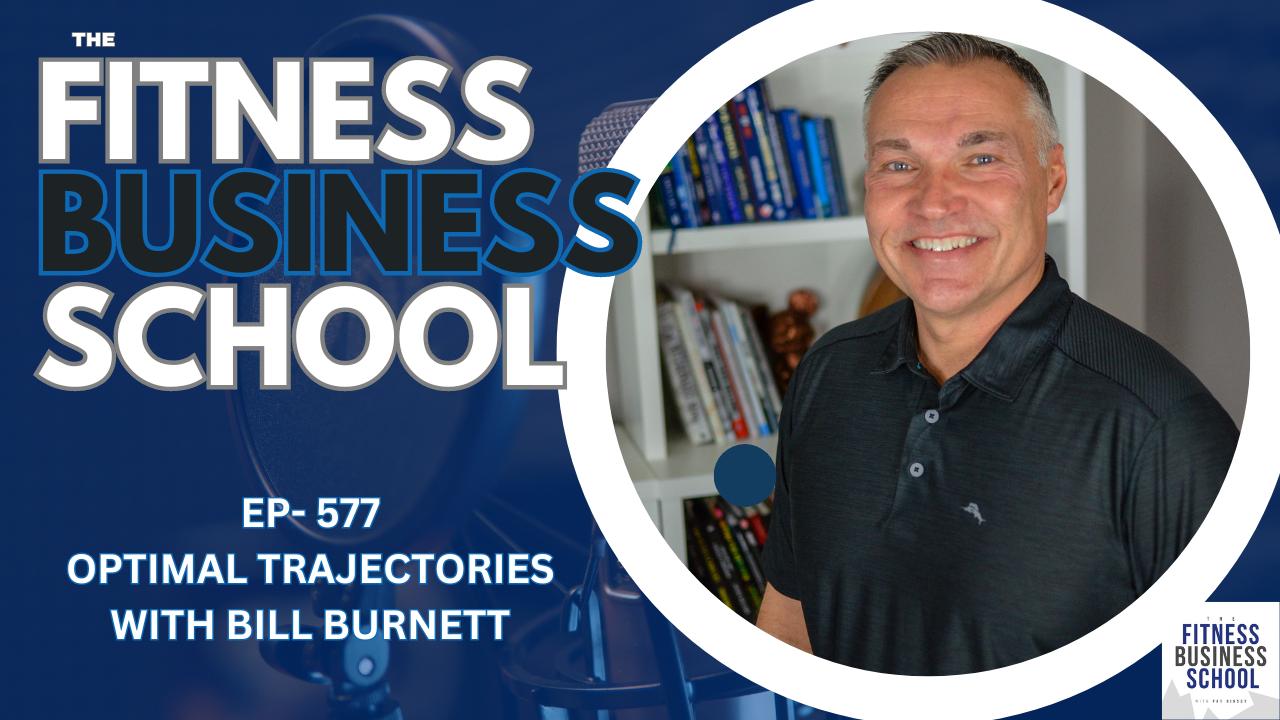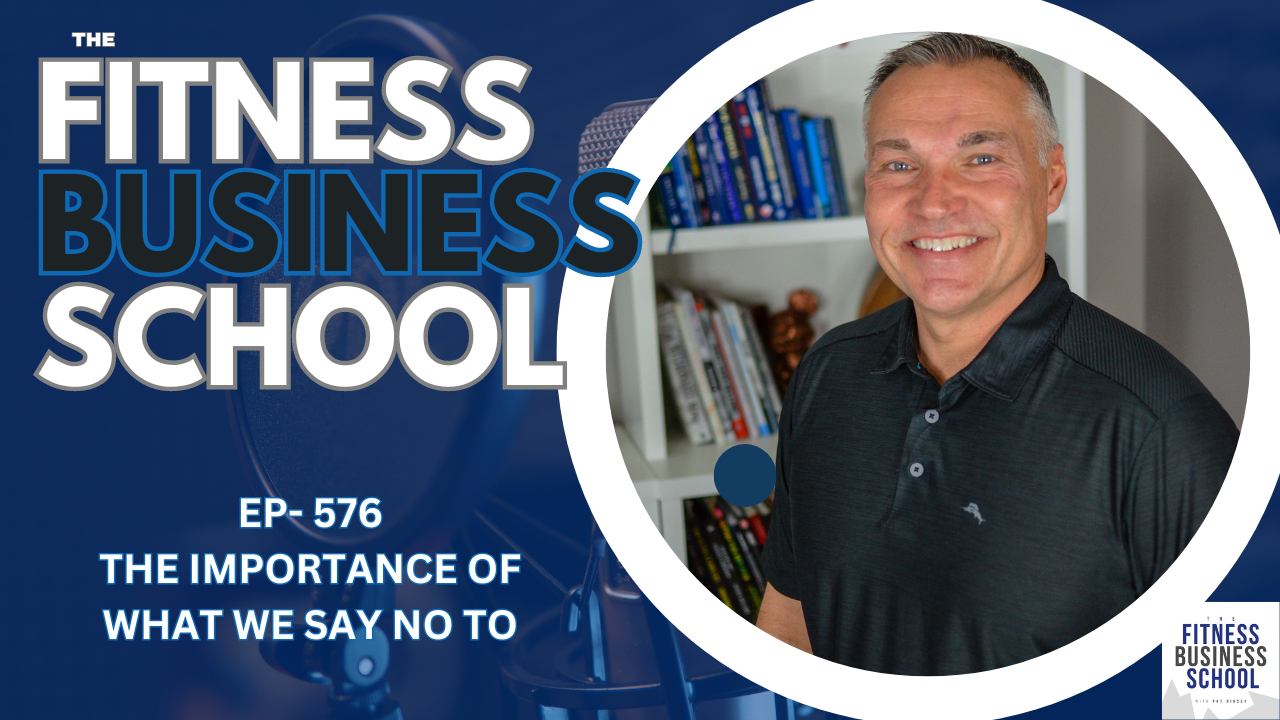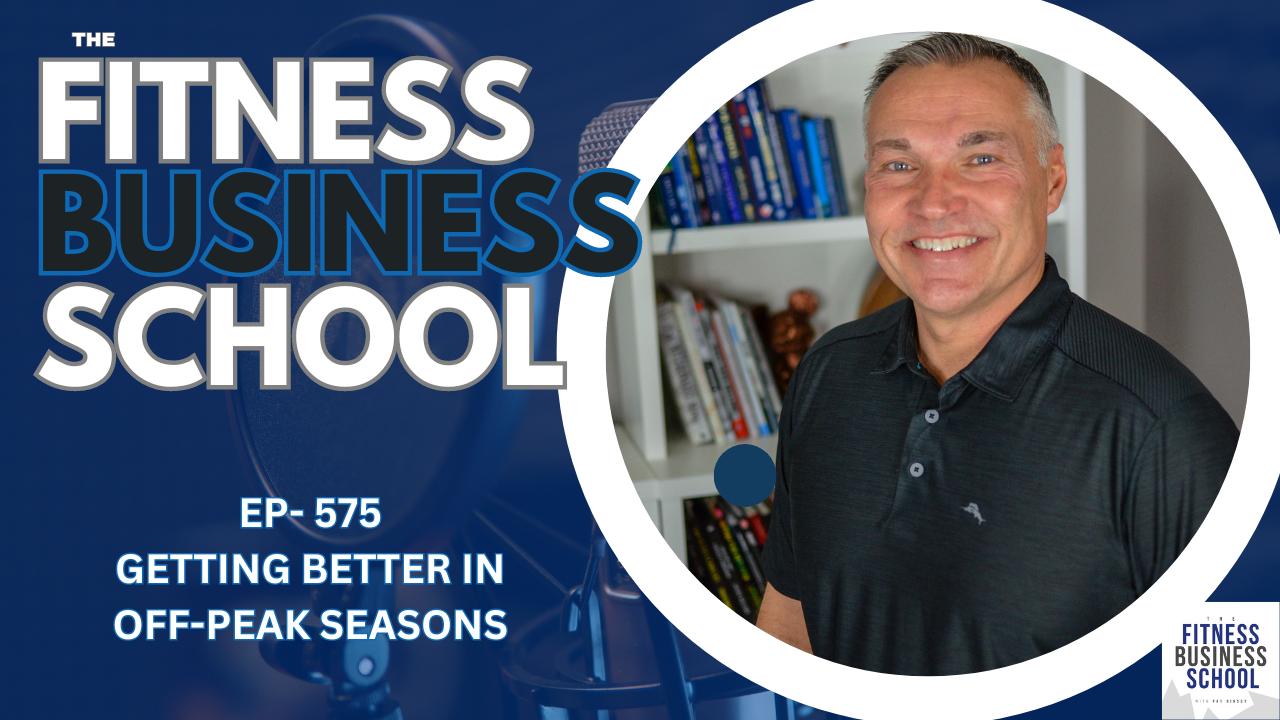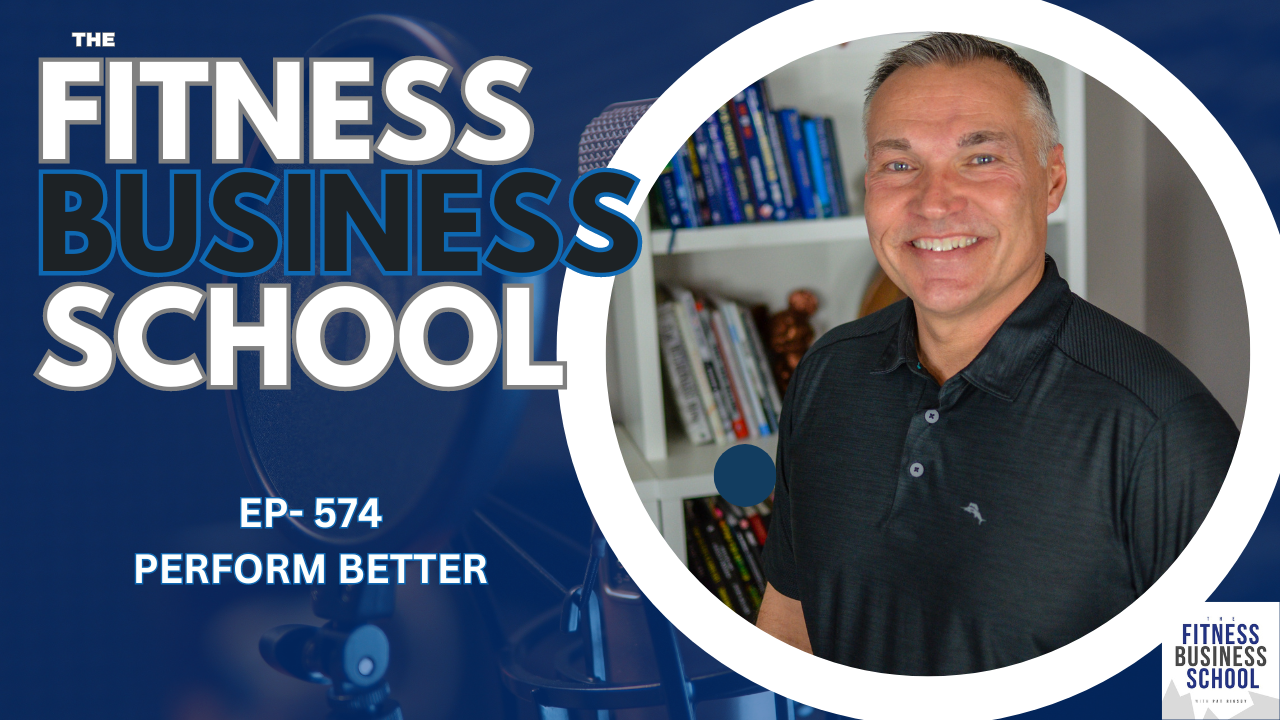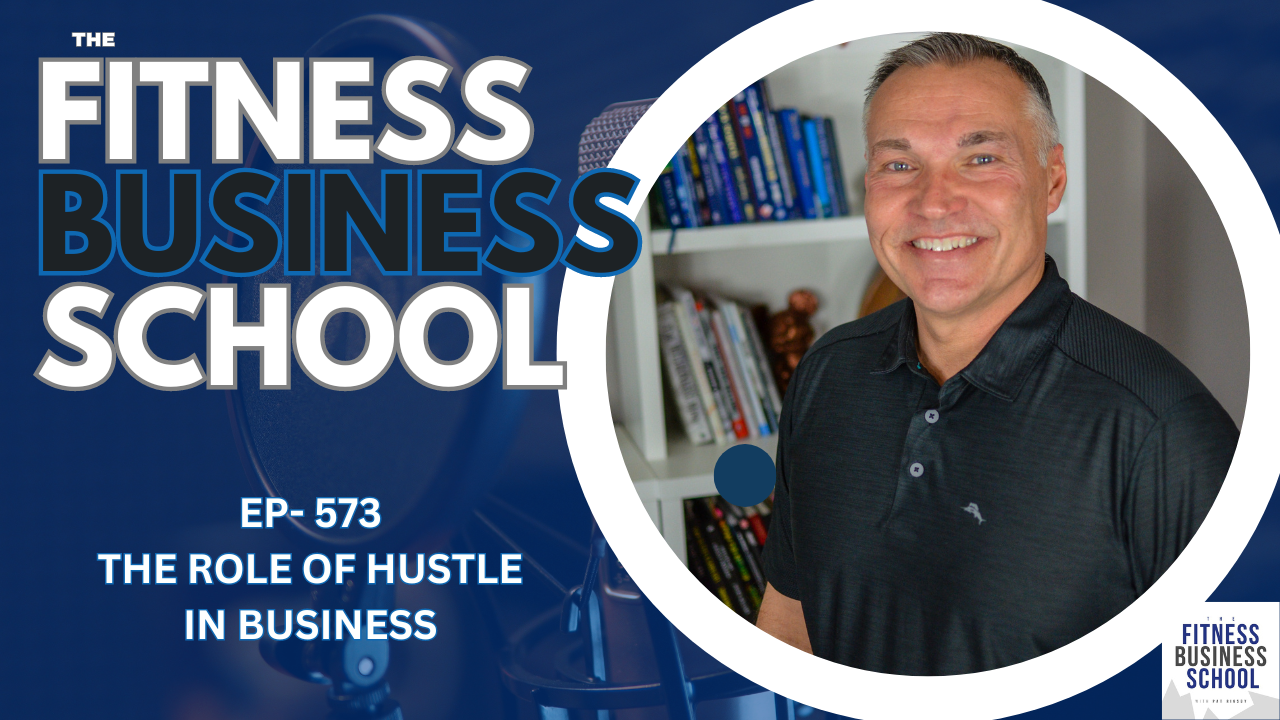Show Notes
00:00 Introduction and Episode Overview
00:51 The Three Legs of My Professional Journey
03:32 Embracing Personal Shortcomings
07:34 Leveraging Limitations for Success
10:24 Conclusion and Special Offer
Full Transcript
Hey, Pat Rigsby here and in today’s episode, I want to talk with you about how your shortcomings can become your edge. Let’s get to it.
Welcome to the Fitness Business School podcast, the show for fitness business owners who
want to grow their income, increase their impact and improve their lifestyle. Be sure to listen to the end
of this episode because we have a brand new special offer exclusive for listeners. So stay tuned.
It’s a strange way to look at it, right? Letting your limitations guide you to success. For me, that’s been the impetus to creating my ideal business. This idea of being exposed to a lot of things that were not a fit for me in my kind of previous legs of my professional life. In my mind, I’ve had three legs of my professional journey.
A college baseball coach. I taught and I did strength coach work at the university, the Shawnee state university. And my kind of first leg, the second leg was building a, almost like a holding company where started out with one training facility, then a health club with a training business inside of it and then some consulting.
And then, Before you knew it, it’s like this holding company of a bunch of different businesses, all related to fitness, sports performance, certification companies, franchises, equipment companies, you name it. And then the third leg is really what I’ve been doing for the better part of the last decade is more coaching, consulting, advising in helping people.
own their ideal business. In some cases being a partner and investor in some businesses that were in alignment with that, where I could play my best role. But I think With each step in this evolution, I don’t know if I’d say I got smarter. I got wiser as to my shortcomings. I got wiser as to the things that were like fingernails on the chalkboard for me, things that I just not didn’t fit with.
And To be fair, it, those operations were what they were. The first two legs of my professional life were what they were, right? Like it, the university didn’t need to conform to me, but there were certain things that I was not a good fit for there. Like the bureaucratic side of things, the red tape that came with not only being a bigger organization, but a state run organization.
So a lot of kind of navigating. and hierarchy and all that stuff. And then my second organization. There are moving parts that grew very quickly and it didn’t take a lot of time. In a span of five years went from one training location with a smoothie bar inside it to launching a franchise, owning a certification company, being the leading business coaching organization for like fitness boot camps in the industry.
and hosting live events. And that was like a five year span to go from that. So it grew very rapidly and then it continued to grow after that and take on more layers. And there were certain parts of it that you probably don’t know they’re not a right fit for you until you try them. And so for me, there are a lot of personal shortcomings or limitations that I have accepted and tried to build around.
And I will preface this by I’m going to give you a few of mine, just almost maybe a brainstorming session to help you figure out yours. And I’m not saying for a minute, these are wrong. I’m saying they’re wrong for me because there are plenty of people who do as well or better or significantly better than me that lean into this stuff.
For me, like I prefer to lead, to coach rather than to micromanage. I’m not a manager. I’m a coach. I’ve been coaching for over 30 years and that’s how I prefer to lead. I prefer to work at home rather than having some big office. And I enjoy people and frankly, this is personally why I don’t do so well in a big office because I would just want to go lead by walking around all day.
And I don’t know that I’d get much of my own stuff done. I prefer to avoid bureaucracy at all costs. I like small business. I like being able to make decisions. I like working with decision makers. It’s why even though we had a little bit of success with corporate fitness offerings, I did not do well with having to jump through all the hoops and navigate that even when I wasn’t working in that environment, but I was trying to.
Maybe do business with people in that environment. I’m not somebody who does real well with business speak or extreme formality. I’m very much I came up in a very blue collar environment and I don’t do well with kind of textbook business talk. I’m very simple and practical about most stuff.
And frankly, when it comes to tech, I view it through a lens that’s different than a lot of people. I see tech is an employee that’s working for me, not something that I have to conform to. I see if I’m using an email software like our, or maybe even a really full, complete suite of marketing tools like our automatic member stuff.
I see that as hiring a marketing assistant. I don’t see it as, Oh, I need to learn every nuance of tech. Cause no, I need to. I don’t need to learn how to lead every different employee on the planet. I need to find the right employee for my business and make it fit. So we move towards our goals. And for me, maybe another shortcoming, or maybe it’s just a personal preference is not.
Being willing to get away from the interactive stuff, the coaching, the consulting, the advising. There, there are a number of people who get into the industry and do like they sell business coaching and initially maybe they do some business coaching, but before you know it, they’re not coaching anybody anymore, right?
Like they’re the sales person or the figurehead and that’s fine. It’s their business. I’m not telling you that’s wrong. I’m saying that I really like the interactive stuff. I really like coaching. And so that’s why I’ll be on zooms or calls today. And there are people that sell coaching that haven’t done a coaching session in a decade.
And it’s a personal preference, right? I, again, it’s not right or wrong. It’s just, that’s the way it is. For me, and those are things that probably hold me back in many ways, right? Like I’m not going to build a builder lead a fortune 500 company because I don’t want that type of bureaucratic environment. I don’t want to have to work in that setting.
I like what I like. And. Instead of seeing them as bottlenecks, I think they’re strengths of my business. And so for you, maybe you don’t have a big marketing budget. Maybe you aren’t a techie, right? Maybe you don’t have a half million dollars worth of shiny equipment or high traffic retail spot. Maybe you aren’t a business expert by traditional kind of MBA business school standards.
In my eyes, that’s all fine. Those are good things, right? Instead of freaking out about these limitations, embrace them. Let them guide you. Constraints can really drive innovation and force focus. I know they have for me. It’s how I was successful as a college baseball coach, and it’s frankly how I’ve achieved any sort of success since then.
So instead of trying to remove them or mask them, use them to your advantage. Put your limitations front and center. I write about mine. I showcase them every day. Anybody who meets me can see them pretty clearly. They’re not hidden and use them to attract other people who can connect with them.
Whether it’s hiring team members that compliment you in the areas that are your shortcoming or contractors that do that. Find people whose strengths are not yours and set them up to succeed. And Like for me, I not having a big office. I love people bringing people into my home so they can see like the real me and the fact that man, my house has lived in, kids are in and out of here and I want people to know that we host our dinners for our masterminds.
Any of them that we do in Louisville, we host right here and everybody’s hanging out here until, until nine or 10 o’clock at night. And it’s why I, write and talk. In the same fashion that I would if you were in here and there was no microphone in front of me. So in your business Do the same thing.
Not having big budget will force you to be more personal if you lean into it. Not having a bunch of selectorized equipment means you get to differentiate by coaching. Not having a big location means you get to be more boutique. Not being a techie means that you may Get out from behind the computer and actually spend time face to face with other human beings.
And not being traditional means you won’t be limited by we’ve always done it this way or short sighted thinking and focus on what’s the best way for you. Limitations I think are Advantages in disguise. So instead of focusing on what you don’t have, use them to your advantage.
Thanks for listening to this episode of The Fitness Business School.
Before you go, I have a quick announcement:
One of of the things that we’ve been doing with our current clients is taking them through this Ideal Business diagnostic and really what it is, this checklist that allows you to pinpoint exactly what your business needs next so you can keep improving, keep growing, and build a business that you love to own, one that pays you well, one that allows you to have the impact you wanna have and one that allows you to have a lifestyle that you truly enjoy.
In this diagnostic, we walk through everything and we do an evaluation and can instantly pinpoint what you need to do next to build that business that you want. I’m going to extend this opportunity to get on with either me or my team and take you through this evaluation and fix your business’s most vital needs fast.
So if we take you through this, you’re gonna be able to make those vital changes that you need to finally have what I call your Ideal Business. If you’d be interested in going through this entirely free, risk-free diagnostic with us and learn what you already have in place, what you’re doing well and where are your greatest opportunities for rapid improvement are just shoot me an email with diagnostic in the subject line to [email protected].
Again, an email to [email protected] with diagnostic in the subject line will get
you scheduled and take you through this evaluation to help you build the business you want.
